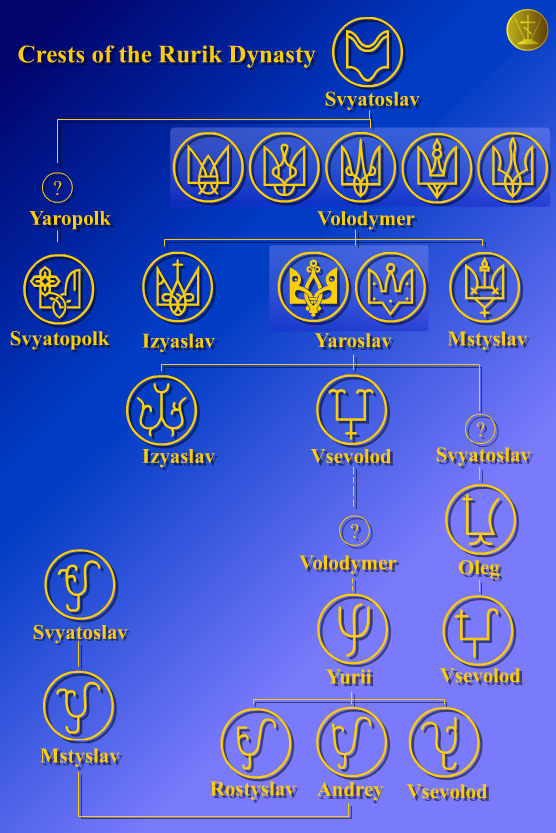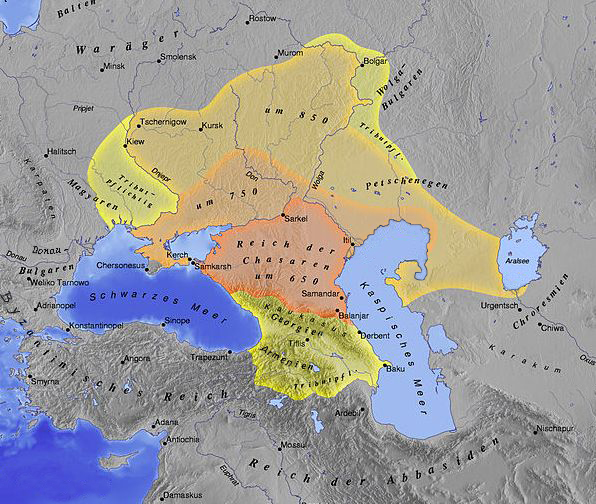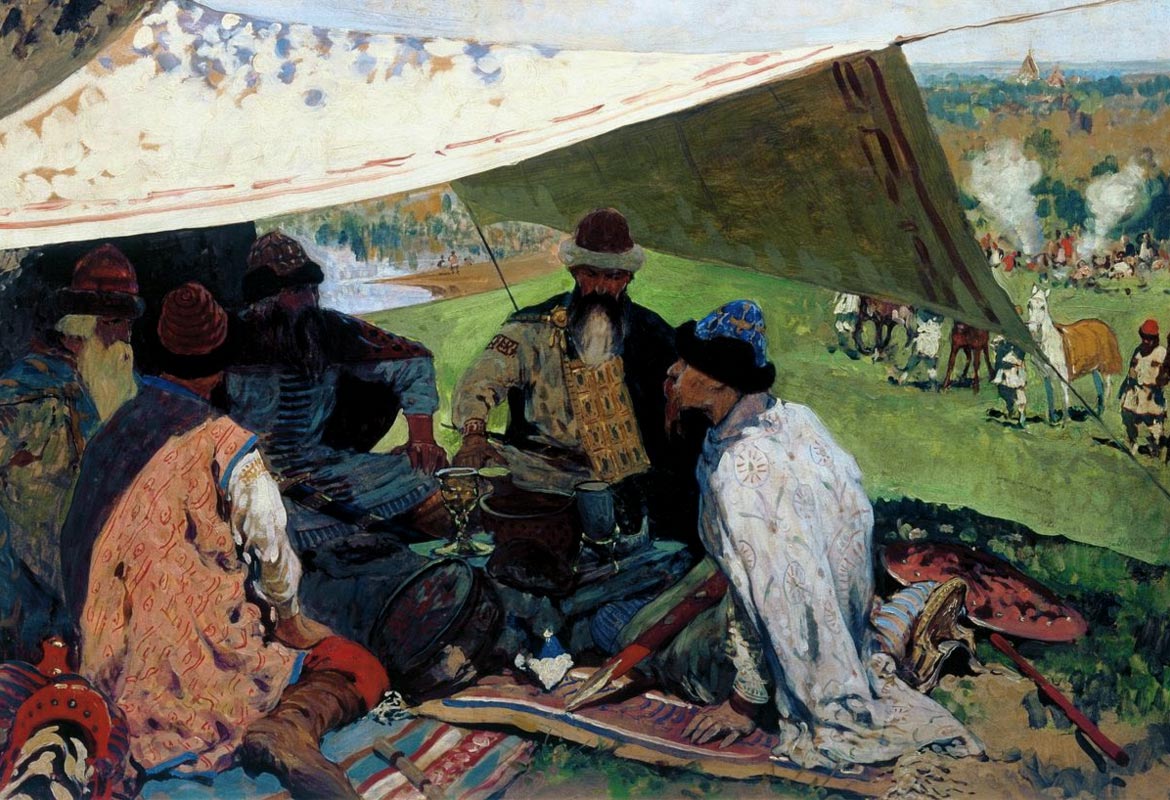|
Vasylko Rostyslavych
Vasilko Rostislavich (; ; – 1124) was a prince of Kievan Rus' and member of the Rurik dynasty. He was the first Prince of Terebovl' from 1092. His Byzantine-style blinding was very unusual among the Rurik dynasty. Life He was the third son of Rostislav Vladimirovich, the prince of Tmutarakan. The historian Martin Dimnik writes that Vasilko's mother was Lanka, a daughter of King Béla I of Hungary. In November 1097, the Prince of Volhynia and Prince Sviatopolk II Iziaslavich of Kiev captured and blinded Vasilko Rostislavich, whom Sviatopolk had tricked into coming to Kiev. Thus, the agreements reached at an earlier meeting of the princes at the Council of Liubech were broken and war ensued. See also *Council of Liubech The Council of Liubech (sometimes referred to as the Liubech Conference) (, ) was one of the best documented princely meetings in Kievan Rus' that took place in Liubech (today in Chernihiv Oblast, Ukraine) on October 19, 1097. The council ended the ... * ... [...More Info...] [...Related Items...] OR: [Wikipedia] [Google] [Baidu] |
Kievan Rus'
Kievan Rus', also known as Kyivan Rus,. * was the first East Slavs, East Slavic state and later an amalgam of principalities in Eastern Europe from the late 9th to the mid-13th century.John Channon & Robert Hudson, ''Penguin Historical Atlas of Russia'' (Penguin, 1995), p.14–16. Encompassing a variety of polities and peoples, including East Slavs, East Slavic, Norsemen, Norse, and Finnic peoples, Finnic, it was ruled by the Rurik dynasty, founded by the Varangians, Varangian prince Rurik.Kievan Rus , Encyclopædia Britannica Online. The name was coined by Russian historians in the 19th century to describe the period when Kiev was preeminent. At its greatest extent in the mid-11th century, Kievan Rus' stretched from the White Sea in the north to the Black Sea in the south and from the River source, headwaters of the ... [...More Info...] [...Related Items...] OR: [Wikipedia] [Google] [Baidu] |
Rurikids
The Rurik dynasty, also known as the Rurikid or Riurikid dynasty, as well as simply Rurikids or Riurikids, was a noble lineage allegedly founded by the Varangian prince Rurik, who, according to tradition, established himself at Novgorod in the year 862. The Rurikids were the ruling dynasty of Kievan Rus' and its principalities following its disintegration. The ''Romanovichi'' ruled the southwestern territories, which were unified by Roman the Great and his son Daniel, who was in 1253 crowned by Pope Innocent IV as the king of Ruthenia. Galicia–Volhynia was eventually annexed by Poland and Lithuania. The northern and northeastern territories were unified by the ''Daniilovichi'' of Moscow; by the 15th century, Ivan III threw off the control of the Golden Horde and assumed the title of sovereign of all Russia. Ivan IV was crowned as the tsar of all Russia, where the Rurik line ruled until 1598, following which they were eventually succeeded by the House of Romanov. As a rul ... [...More Info...] [...Related Items...] OR: [Wikipedia] [Google] [Baidu] |
Principality Of Terebovlia
The Principality of Terebovlia () was a principality of Kievan Rus' established as an appanage around the year 1084 and given to Vasylko Rostyslavych. However, Volodar Rostyslavych and Rurik Rostislavich, ruled Peremyshl (Przemyśl) and Zvenyhorod respectively. History A southeastern appanage principality of Kievan Rus, the capital of which was Terebovlia. Its territories included parts of southeastern Galicia, Bukovina, and western Podolia. It bordered on Kiev principality to the east, Zvenyhorod principality to the west, and parts of Principality of Volodymyr, Lutsk principality, and Peresopnytsia principality to the north. Vasylko Rostyslavych extensively colonized the territories southeast of Terebovlia by employing Turkic peoples ( Berendeys, Torks, and Pechenegs), and he annexed Ponyzia, thereby securing it against nomadic raiders. Halych gained importance as a political and economic center; other important cities and fortresses included Terebovlia, Mykulyn (now ... [...More Info...] [...Related Items...] OR: [Wikipedia] [Google] [Baidu] |
Blinding (punishment)
Blinding is a type of physical punishment which results in complete or nearly complete loss of vision. It was used as an act of revenge and torture. The punishment has been used since antiquity; Greek mythology makes several references to blinding as divine punishment, which reflects human practice. In the Byzantine Empire and many other historical societies, blinding was accomplished by gouging out the eyes, sometimes using a hot poker, and by pouring a boiling substance, such as vinegar, on them. In mythology and religious law Oedipus gouged out his own eyes after accidentally fulfilling the prophecy that he would end up killing his father and marrying his mother. In the Bible, Samson was blinded upon his capture by the Philistines. Early Christians were often blinded as a penalty for their beliefs. For example, Saint Lucy's torturers tore out her eyes. This form of torture was also applied to the virgin martyrs Saint Tatiana and Saint Hripsime, according to their ... [...More Info...] [...Related Items...] OR: [Wikipedia] [Google] [Baidu] |
Rostislav Of Tmutarakan
Rostislav Vladimirovich ( – 3 February 1066) was a landless prince ('' izgoi'') from the Rurikid dynasty of Kievan Rus’. He was baptized as Mikhail. According to the Russian genealogist Nikolai Baumgarten, the mother of Rostislav was Oda of Stade, a daughter of the Stade Count Leopold. That claim is also supported by other historians. At his younger age, Rostislav ruled Rostov in the land of the Merya. His father Vladimir of Novgorod was the eldest son of Yaroslav I of Kiev. If Vladimir had not predeceased his father, he would have succeeded to the Kievan throne. Under the East Slavic house law, the early death of Rostislav's father made his descendants forfeit all claims to Kiev. For five years after his father's death, Rostislav who was about 14 years old had no appanage. Finally, his uncles gave him Volhynia and Galicia, where he stayed from 1057 and 1064, guarding the western frontier of the Rus' lands. According to Vasily Tatischev, it was there that he married ... [...More Info...] [...Related Items...] OR: [Wikipedia] [Google] [Baidu] |
Tmutarakan
Tmutarakan (, ; ) was a medieval principality of Kievan Rus' and trading town that controlled the Cimmerian Bosporus, the passage from the Black Sea to the Sea of Azov, between the late 10th and 11th centuries. Its site was the ancient Greek colony of Hermonassa () founded in the mid 6th century BCE, by Mytilene (Lesbos), situated on the Taman peninsula, in present-day Krasnodar Krai, Russia, roughly opposite Kerch. The Khazar fortress of Tamantarkhan (from which the Byzantine name for the city, Tamatarcha, is derived) was built on the site in the 7th century, and became known as Tmutarakan when it came under the control of Kievan Rus'. History The Greek colony of Hermonassa was located a few miles west of Phanagoria and Panticapaeum, major trade centers for what was to become the Bosporan Kingdom. The city was founded in the mid-6th century BCE by Mytilene (Lesbos), although there is evidence of others taking part in the enterprise, including Cretans. The city flourished f ... [...More Info...] [...Related Items...] OR: [Wikipedia] [Google] [Baidu] |
Béla I Of Hungary
Béla I the Boxer or the Wisent (, ; – 11 September 1063) was King of Hungary from 1060 until his death. He descended from a younger branch of the Árpád dynasty. Béla's baptismal name was Adalbert. He left Hungary in 1031, together with his brothers, Levente and Andrew, after the execution of their father, Vazul. Béla settled in Poland and married Richeza (or Adelaide), daughter of Polish king Mieszko II Lambert. He returned to his homeland upon the invitation of his brother Andrew, who had in the meantime been crowned King of Hungary. Andrew assigned the administration of the so-called '' ducatus'' or "duchy", which encompassed around one-third of the territory of the Kingdom of Hungary, to Béla. The two brothers' relationship became tense when Andrew had his own son, Solomon, crowned king, and forced Béla to publicly confirm Solomon's right to the throne in 1057 or 1058. Béla, assisted by his Polish relatives, rebelled against his brother and dethroned him ... [...More Info...] [...Related Items...] OR: [Wikipedia] [Google] [Baidu] |
Sviatopolk II Iziaslavich
Sviatopolk II Iziaslavich (; 8 November 1050 – 16 April 1113) was Grand Prince of Kiev from 1093 to 1113. He was not a popular prince, and his reign was marked by incessant rivalry with his cousin Vladimir Monomakh. Early life Sviatopolk was the son of Iziaslav Iaroslavich by his concubine. During his brother Iaropolk's life, Sviatopolk was not regarded as a potential claimant to the throne of Kiev. In 1069 he was sent to Polotsk Polotsk () or Polatsk () is a town in Vitebsk Region, Belarus. It is situated on the Dvina River and serves as the administrative center of Polotsk District. Polotsk is served by Polotsk Airport and Borovitsy air base. As of 2025, it has a pop ..., a city briefly taken by his father from the local ruler Vseslav of Polotsk, Vseslav, and then he spent ten years (1078–88) ruling Novgorod. Upon his brother's death he succeeded him in Turaŭ, Turov, which would remain in possession of Ostrogski, his descendants until the 17th century. Reign Whe ... [...More Info...] [...Related Items...] OR: [Wikipedia] [Google] [Baidu] |
Council Of Liubech
The Council of Liubech (sometimes referred to as the Liubech Conference) (, ) was one of the best documented princely meetings in Kievan Rus' that took place in Liubech (today in Chernihiv Oblast, Ukraine) on October 19, 1097. The council ended the (1093–1097) between Sviatopolk II of Kiev, Vladimir II Monomakh and Oleg I of Chernigov who fought for the heritage of his father Sviatoslav II of Kiev. The council, initiated by Vladimir Monomakh, brought together Sviatopolk II, Vasylko Rostyslavych, Davyd Sviatoslavich, Oleg I, and other Rus' princes. It aimed to stop the Chernigov war of succession, to pacify the people, and to present a unified front against the Polovtsy (Cuman people, Cumans). It resulted in the division of Kievan Rus' among the princes, letting their immediate families inherit them. This broke a rota system (''lestvichnoe pravo'') that had been followed in Kievan Rus' for two centuries which saw the oldest son take the throne and was ruled by a succession of the ... [...More Info...] [...Related Items...] OR: [Wikipedia] [Google] [Baidu] |
Council Of Uvetichi
The Council of Uvetichi consisted of two meetings of the senior generation of princes of Kievan Rus'. It took place in August 1100, and it had a twofold purpose: to bring about a reconciliation among the princes and to pass judgment on Prince Davyd Igorevich. The venue of the conference was the town of Uvetichi, which is on the right bank of the Dnieper not far from Kiev. It is now the village of Vytachiv in the Kyiv Oblast. The Rus' Primary Chronicle ("The Tale of Bygone Years", the Povest' vremennykh let) is the primary source of information for the meetings, and the information is presented twice in the chronicle: first in detail under the year 1097, and then sequentially under the years 1098-1100. Background The council was preceded by severe conflict involving the Volhynian and Galician regions. It began in November 1097 when, violating the agreements reached at the earlier meeting of princes at the Council of Liubech, Volhynian Prince and Prince Svyatopolk II Izyaslavi ... [...More Info...] [...Related Items...] OR: [Wikipedia] [Google] [Baidu] |
11th-century Princes From Kievan Rus'
The 11th century is the period from 1001 (represented by the Roman numerals MI) through 1100 (MC) in accordance with the Julian calendar, and the 1st century of the 2nd millennium. In the history of Europe, this period is considered the early part of the High Middle Ages. There was, after a brief ascendancy, a sudden decline of Byzantine power and a rise of Norman domination over much of Europe, along with the prominent role in Europe of notably influential popes. Christendom experienced a formal schism in this century which had been developing over previous centuries between the Latin West and Byzantine East, causing a split in its two largest denominations to this day: Roman Catholicism and Eastern Orthodoxy. In Song dynasty China and the classical Islamic world, this century marked the high point for both classical Chinese civilization, science and technology, and classical Islamic science, philosophy, technology and literature. Rival political factions at the Song dynasty ... [...More Info...] [...Related Items...] OR: [Wikipedia] [Google] [Baidu] |





